
Definition of Emotional Intelligence
As the workplace adjusts to fewer people doing more work, new sets of skills are needed. Often there is no one around to supervise and direct the actions of others.
Each worker must be able to work well with others, to direct their own work, and manage their time efficiently.
The driving factor in this flattening of the organization is change brought on by the digital economy. We all must learn to accept and adapt to change.
Emotional Intelligence and Teamwork
At Michelin in the late 1990s there was a move like many other businesses to remove the forman and create a team approach. This is where I first saw how social & emotional learning (SEL) or emotional intelligence (EQ) can facilitate change in the workplace.
Knowledge vs Practice
At Michelin team members took courses in team building and passed the team team courses but still had trouble implementing the team process. Knowledge of the team process is different than the emotional intelligence needed to make teams run smoothly.
Closing the Gap at Michelin
Management stated our workers have the knowledge to work in teams, but now they must learn the emotional skills that are needed to implement their knowledge.
At Michelin all team members took our Personal Skills Map which is our emotional intelligence assessment in order to get a baseline of where team members are at and what areas need to be developed.
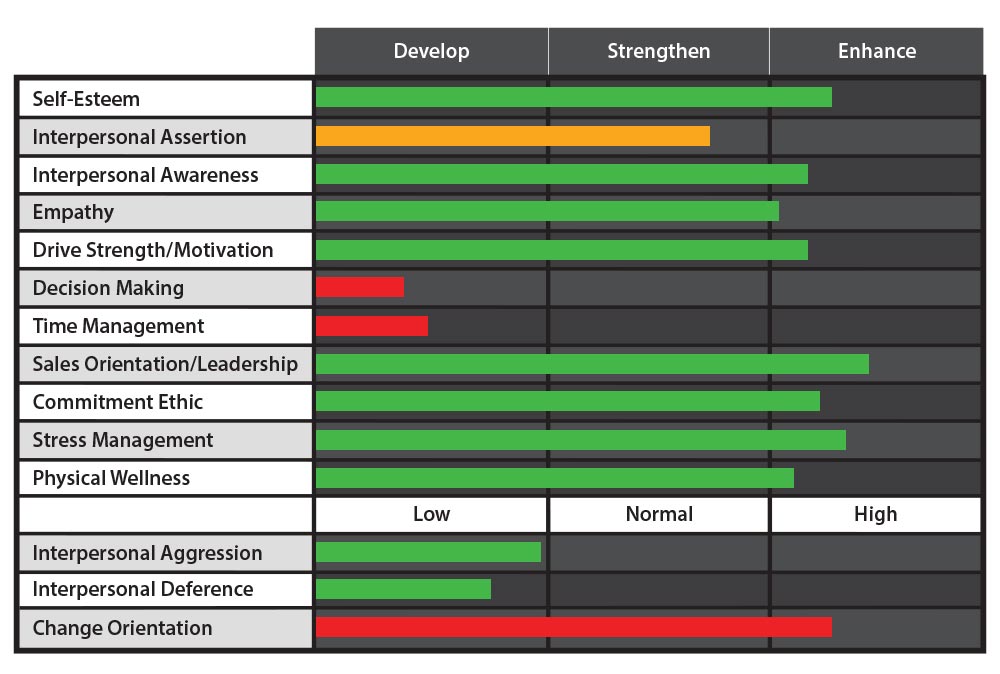
Assessment Drives Instruction
After the Personal Skills Map (EQ) assessment team members were broken into different groups for skill building activities based upon assessment results. For the next few weeks they meet before and after each work shift to discuss how they had tried to implement what they had learned in their emotional intelligence classes.
The Rules for Work Are Changing
In Daniel Goleman’s book Working With Emotional Intelligence, 1998, he states that there is a new yardstick for success in the workplace. He states that we are being judged by not just how smart we are or our training and experience, but also how we handle ourselves and each other. Results were dramatic.
Definition of Emotional Intelligence
Emotional Intelligence is a learned ability to identify, explain, understand and express human emotions in healthy and productive ways.
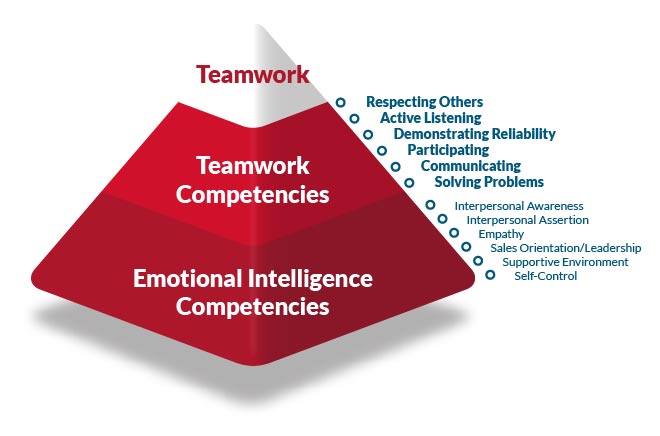
Definition of Soft Skills
Refers to a group of personal qualities that enable someone to interact effectively with other people.
Need for Soft Skills
Research Conducted by Harvard University, Carnegie Foundation and Stanford Research Center have collaborated on soft skills research for over 100 years. Charles Riborg Mann in 1918 completed a study of over 4,000 potential employers on the importance of hard skills vs soft skills.
Job Success
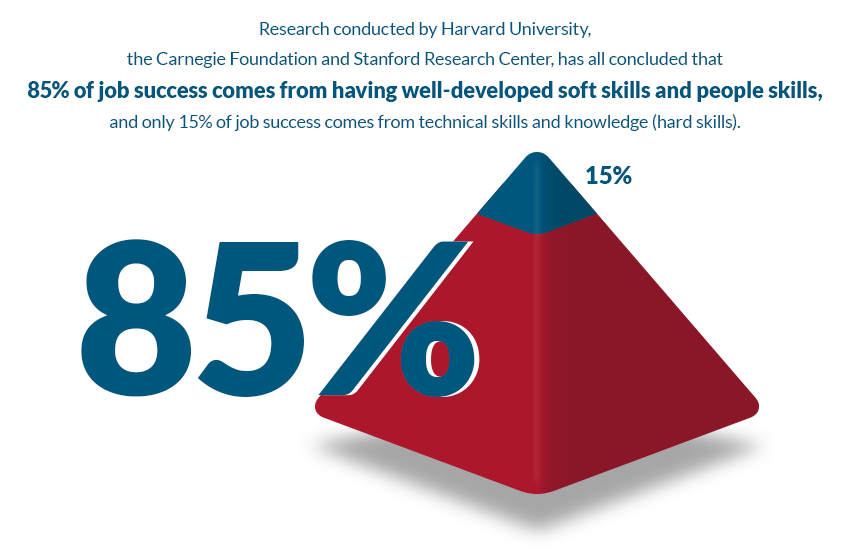
The cited figures come from the data on pages 106‐107. The report is out of print, but can be found online at https://www.nationalsoftskills.org/where-did-this-come-from/
The Great Decoupling
Erick Brynjolfson and Andrew McAfee in 2015 stated that education must take note that primary and secondary schools must teach relevant and valuable skills, which means things that computers do not do well.
Skills That Economic Opportunities Are Built
Both primary and secondary schools should be teaching relevant and valuable skills, which means things computers do not do well. These include:
● Creativity
● Interpersonal Skills
● Critical Thinking
● Problem Solving
These core skills are primary skills of our Workplace Readiness Credential.
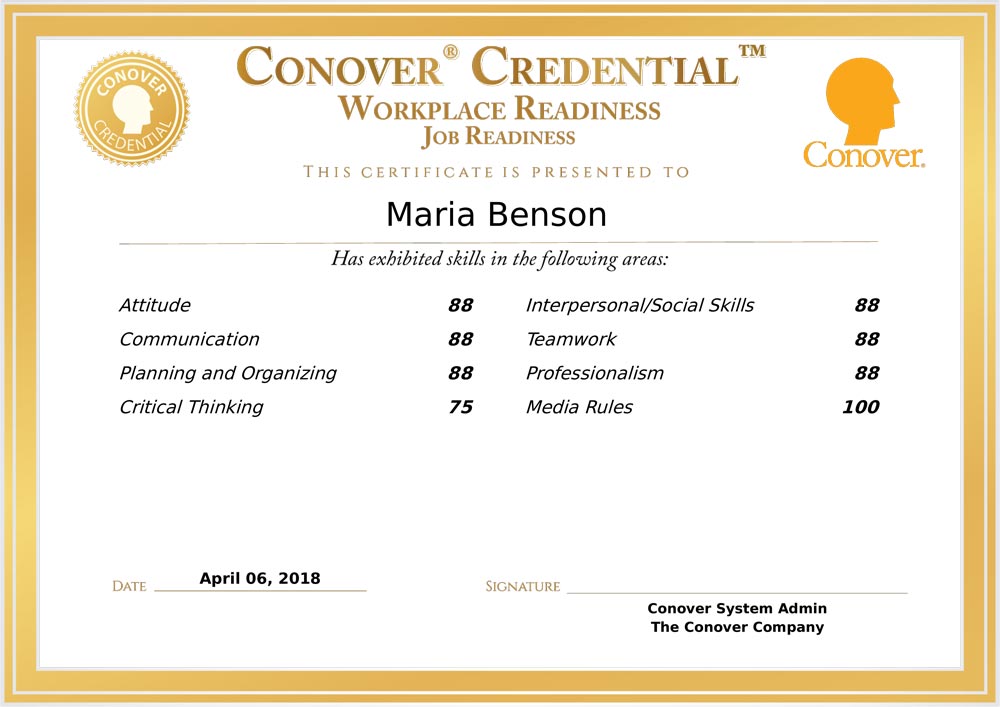
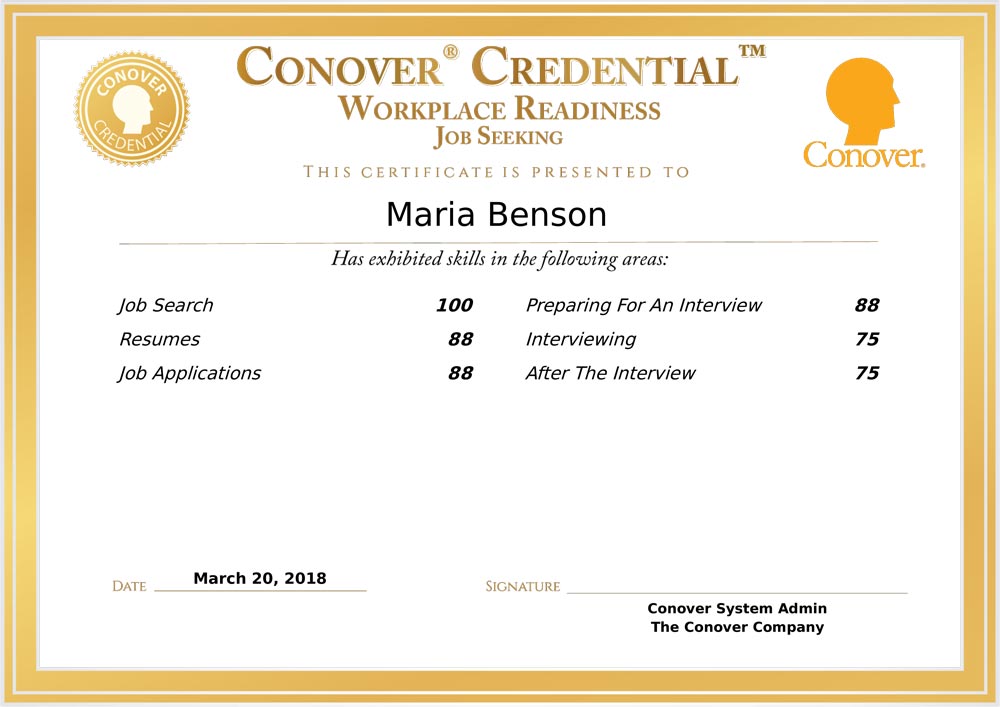
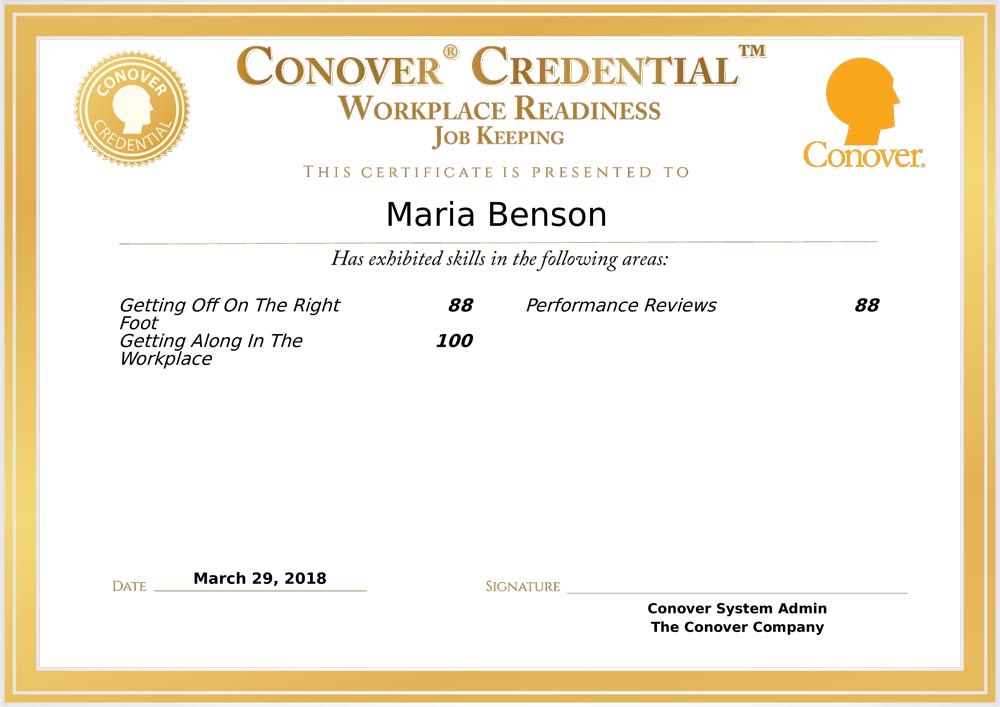
Partner With Us
For a free trial, visit our website at: https://www.conovercompany.com
